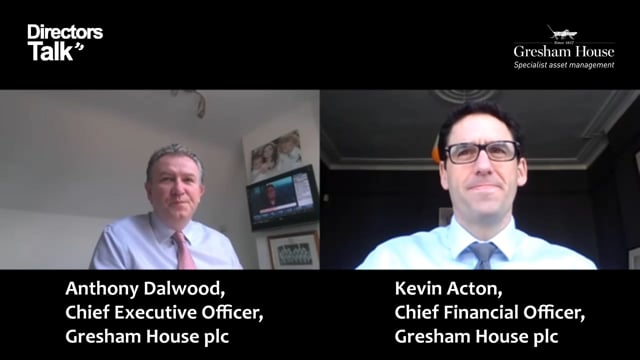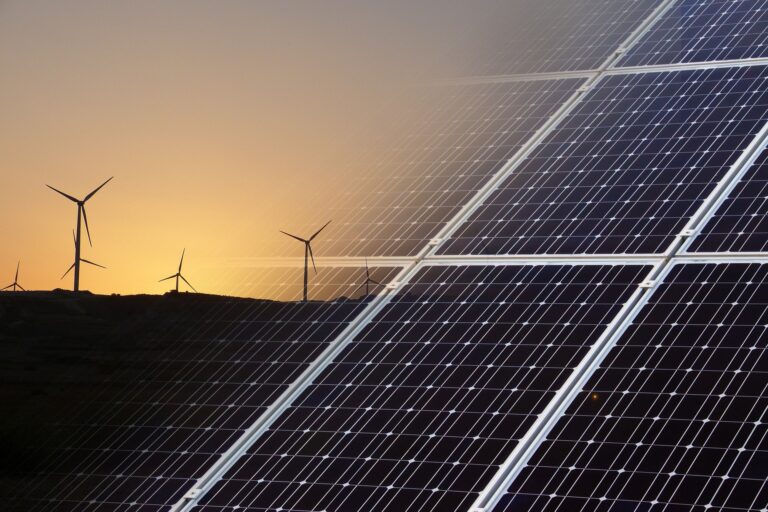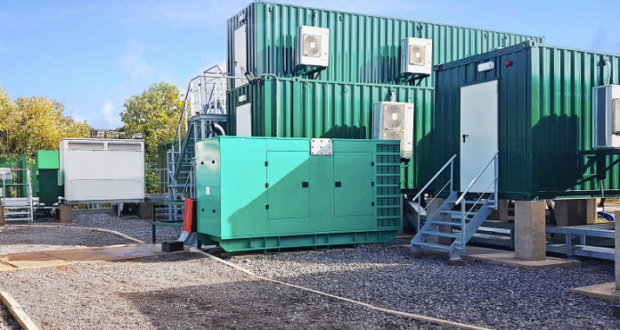Gresham House plc (LON:GHE) Chief Executive Officer Tony Dalwood and Chief Financial Officer Kevin Acton caught up with DirectorsTalk to discuss annual results, progress of their five-year plan, managing the balance between investing in the business and managing the costs, how scalable the business is and how they are approaching sustainability ambitions.
Q1: Tony, if we could start with you. What were the key takeaways for investors from the results that you’ve announced today?
A1: Well, it’s been a challenging year for everybody, macro as well as social, and so we’re really pleased at our clients and our shareholders have done well during this period.
We’ve managed to grow, organically, our Assets under Management by 35% leading to a total growth of assets of 42% when you include an acquisition. We’ve led to a 17% growth in operating profit and finally, importantly for shareholders, a 33% growth in dividend.
So, we’re really pleased across all of our businesses, real assets, and strategic equity, you’ve seen AUM growth, profitability growth, and importantly, as we entered this year, some momentum in order to continue that growth, particularly around the sustainability aspects that we know are so important and increasingly so for investors.
Q2: Can I just ask you about your five-year plan. You’re at the end of the first year now, what can you tell us about the progress that you’ve made?
A2: So, a year ago we set out strategic targets and financial targets for five years in order to frame where we want to take the company and frame how we’re going to create shareholder value. Of course, part of that is clients as well in order to make sure that we listened to them and deliver what they’re after.
Financially, we said to double shareholder value through growing Assets under Management to £6 billion or more, to achieve 40% plus margins and also to achieve a return on capital of 15% on our balance sheet.
I’m pleased to say that we make good progress in all of those, we’ve ended the year with around £4 billion worth of Assets under Management so well on the way to the £6 billion target. We’ve achieved over 15% return on our balance sheet capital on the number of acquisitions we’ve made over the last few years.
When you turn to our strategic targets, we put a lot of resource, invested in people and systems and data in order to capture the ESG aspects, which we know are so important. We’ve grown our market share in VCT’s, in sustainability aspects, in battery storage where they are now the largest fund manager in Europe for that, and of course, forestry as well, where we continue to be a number one in the UK, and we’ve gone outside of the UK into Ireland and increasingly we’re looking at carbon credits as an opportunity in New Zealand.
So, a number of things that we are achieving within our business to achieve that five-year plan and I’m pleased to say, as we enter year two, we’re in a good place.
Q3: Kevin, how are you managing the balance between investing in the business and managing the costs?
A3: It’s a good question. We’ve made a conscious decision to invest in the business, we’re very focused on costs and we’re making sure we have the right mix of people and skills to maximize the growth of the business.
So, 2020 was very much a year of investment, we’ve looked to build on those areas where we’ve got good momentum and that includes investment in areas such as distribution, our investment teams, compliance, and finance and across the board basically, to support a much larger AuM base, which is what we were targeting.
So, for 2020, our operating margin was 30%, we expect to see in that investment in AUM drive revenues and ultimately profits, the challenge is matching our cost base with our ambitions to grow.
Q4: Just how scalable is the business though, without adding further costs?
A4: We stepped back and we look at how what our plan was, when we started out on this journey, the size of the opportunity, particularly in relation to ESG and sustainable investment is now a lot larger than we had originally anticipated.
So, having invested in the business in 2020, we will be continuing to invest in the business in 2021 and that will be again in areas where we’ve identified great momentum. These are areas such as battery storage, forestry, particularly shared ownership housing, helping people get on this housing ladder, and sustainable infrastructure. We’re seeing great momentum in our teams and our business but also what our clients that have been to invest in.
So, with governments, organisations and people in general becoming much more driven by decarbonization, net zero ambitions and investing in things that make a difference, that’s really at the heart of our ambitions and our growth ambitions to resize to match that.
We’ve made a conscious decision to continue to invest in the business, you’ll see that in 2021 but you should see the benefit of that coming through in 2022 and 2023 with greater margin improvement there.
Q5: Tony, how are you approaching your sustainability ambitions?
A5: This is clearly a structural growth area for investors and all stakeholders, we’re approaching it from a client’s perspective and an internal perspective and from a shareholder perspective, there are many things to learn, data points to acknowledge and appraise.
The culture of the business is evolving within Gresham House to make sure we embed the ability and the demands of sustainability. We’ve we brought in a person to head up as Director of Sustainability and she is looking at driving all sorts of aspects within our business, our investment process, our marketing literature as well as our considerations on everything you do from employees through to our clients.
So, it is becoming immersed within our business and we do firmly believe that you don’t have to give up financial returns in order to achieve sustainability or ESG returns, and we believe in that double bottom line i.e., social, and financial returns.
We are beginning to be recognised, the PRI – Principles of Responsible Investment – we have A and A+ ratings there, which is good to see, the London Stock Exchange has given us the Green Economy Mark, which is good to see as well. It is also good to see that we’re going to publish our first sustainability investment report in the next week or so.
Lots going on and I think it’s important that we’re at the start of this journey and there’s a long way to go as we listen to clients and try to create solutions for them as well.










































